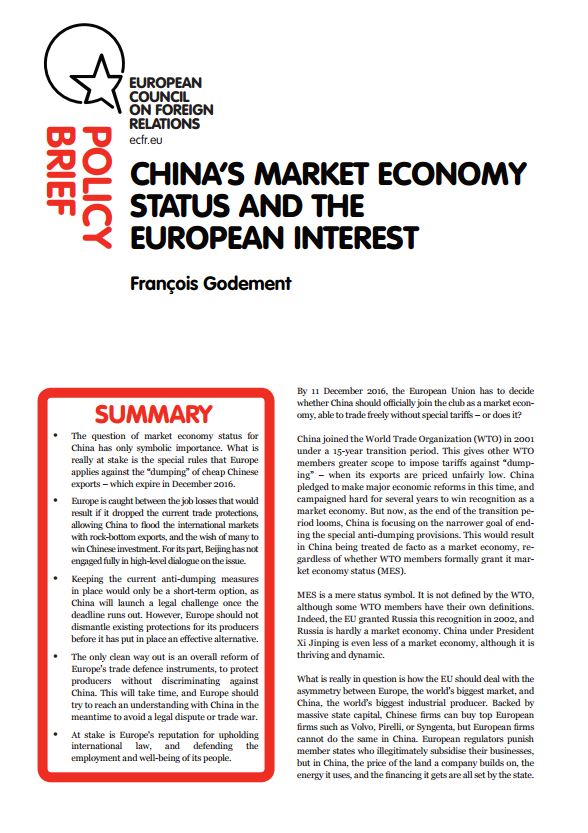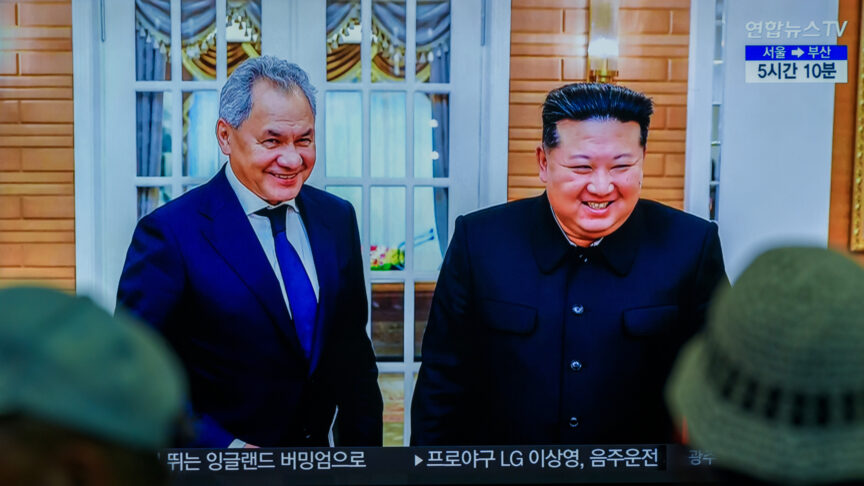China’s market economy status and the European interest
“China’s market economy status and the European interest” argues that the question of market economy status is a red herring
“China’s market economy status and the European interest”, a policy paper, argues that the question of market economy status is a red herring. The term is not even defined under WTO rules. In fact, China is focusing its attention on the battle to get rid of Europe’s special anti-dumping measures.
Keeping the current measures in place would only be a short-term solution, as China will launch a legal challenge once the deadline runs out. However, Europe should not dismantle existing protections for its producers before it has put in place an effective alternative.
The only clean way out is a broad reform of Europe’s trade defence instruments, to ensure protection for producers without discriminating against China. This will take time, and Europe should try to reach an understanding with China in order to avoid a legal dispute or trade war in the interval.
Author François Godement said:
“What is really in question is how the EU should deal with the asymmetry between Europe, the world’s biggest market, and China, the world’s biggest industrial producer. Backed by massive state capital, Chinese firms can buy top European companies such as Volvo, Pirelli, or Syngenta, but European firms cannot do the same in China. European regulators punish member states who illegitimately subsidise their businesses, but in China, the price of the land a company builds on, the energy it uses, and the financing it gets are all set by the state. The asymmetry threatens Europe’s very fabric. Beijing’s economic policies are deeply divisive. China provides inexpensive goods for consumers, but takes jobs away from producers.”
“It is hugely important for Europe to find a trade regime that is suitable for China. It is the Union’s second-biggest trade partner and is a key link in the global production chain, without which the shelves of our shops would be half empty. The EU’s defining talent is its ability to set a mix of rules that balance free trade and the welfare state. Sitting passively while this balance is under threat, because China has grown more than it has changed, is not an option. Inaction would only feed a massive popular backlash against global free trade.”
“China’s self-centred vision over market economy status is a cause for concern, even if it stems from the traditional views of China as a developing economy that has been ‘unfairly’ treated by Europe. Given the uncertainties on the horizon for the EU, China may be overestimating Europe’s internal divisions, and the effectiveness of its own lobbying, and underestimating Europe’s resilience when it comes to core economic and trade issues.”
The European Council on Foreign Relations does not take collective positions. ECFR publications only represent the views of their individual authors.



